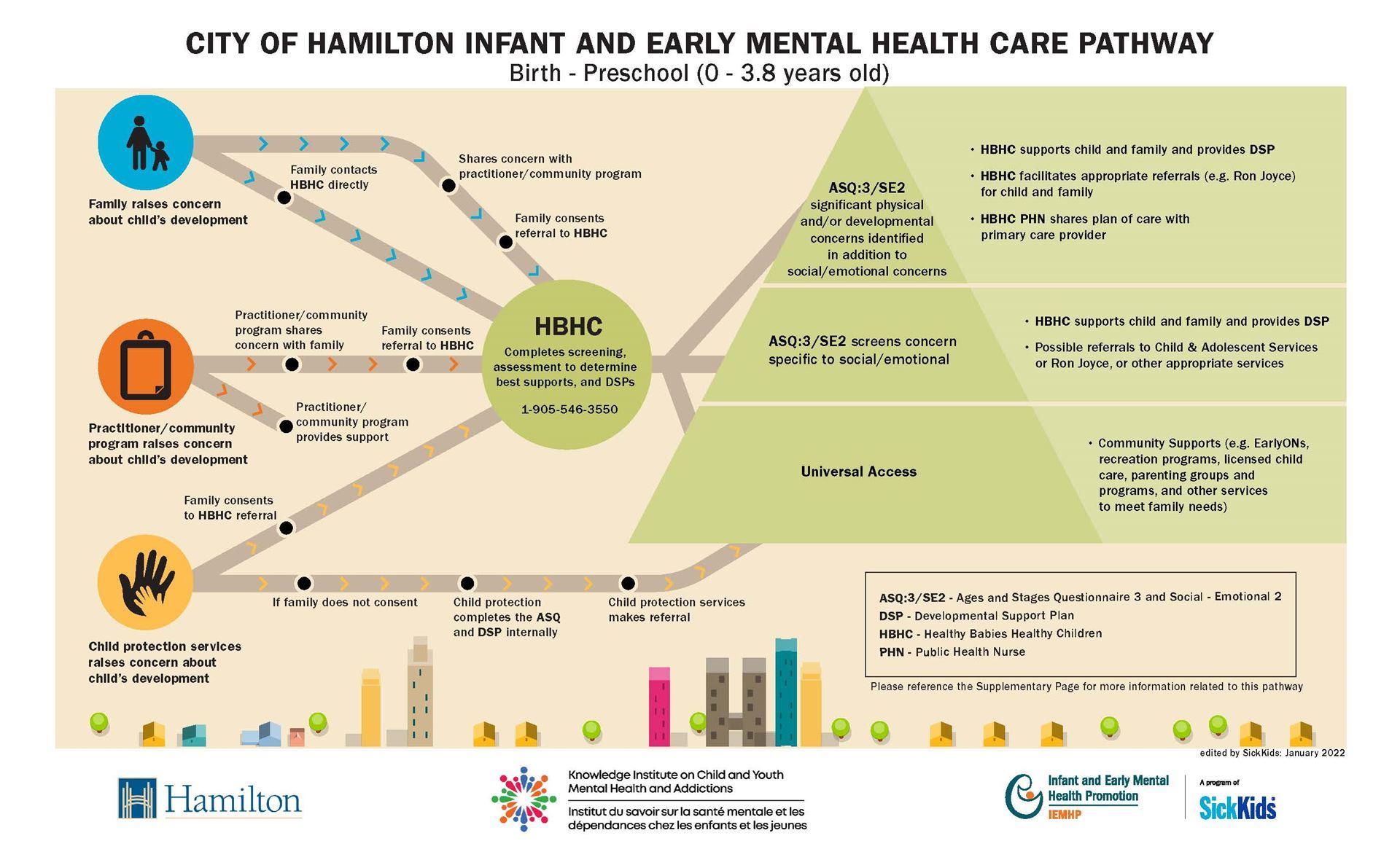- Home
- Research & Innovation
- Infant and Early Mental Health Care Pathways
Infant and Early Mental Health Care Pathways
Establishing Community Systems of Care
- Do you feel prepared to support young children with developmental delays in your community?
- Are you aware of and know how to access the supports and services in your community that can help young children under 6 and their families?
- How concerned are you about long wait lists for services?
The Beginning of Change:
Welcome to the Infant and Early Mental Health Care Pathways initiative! In Canada, the journey to finding timely support for children under the age of 6 facing developmental challenges can often be unclear and challenging. The absence of navigable systems of care pathways for infant and early mental health (IEMH) means that many children may not receive the support they need until they enter the school system. Our initiative seeks to address this gap by creating clear pathways to ensure timely and appropriate support for children facing IEMH concerns. The IEMH Care Pathways Brief provides information on the background, research, and evaluation for this initiative.
The Expected Outcomes:
- Developing and implementing aspirational IEMH Care Pathways
- Transforming mental health in the early years with integrated care
- Strengthening the implementation of culturally-safe interventions for diverse populations
- Catalyzing interdisciplinary and cross-sectoral collaborations
- Building and fostering implementation science research and knowledge mobilization
- Ensuring meaningful representation and participation of individuals who have historically faced barriers in research
The Vision for Transformation:
IEMH Care Pathways Maps
Below are examples of IEMH Care Pathway maps created by different communities. These maps illustrate the aspirational journey for infants and young children facing mental health challenges to, through, and out of services to encourage timely access to support and interventions.
**Please note that these maps are drafts and are subject to refinement based on ongoing community feedback.**
The Project Team
With financial support from the Mental Health in the Early Years Implementation Science grant by the Canadian Institutes for Health Research (CIHR), this project is led by a collaboration between IEMHP, The Hospital for Sick Children and:
Dr. James Reynolds’ team at Queen’s University in Kingston, ON
The Knowledge Institute on Child and Youth Mental Health and Addictions at the Children’s Hospital of Eastern Ontario.
Would you like to learn more and get involved in the IEMH Care Pathways initiative? Contact us today.


